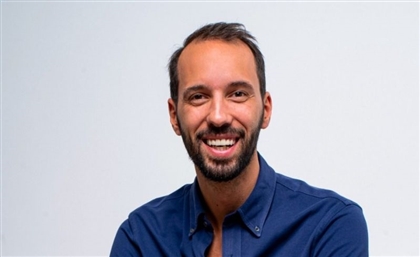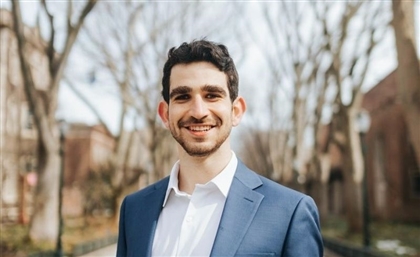Why Algebra Ventures Is Joining Forces with Startup Scene for the First Startup Picnic in Egypt
In the run up to the inaugural edition of Startup Scene's Startup Picnic, we sit down with the team behind Algebra Ventures to discuss what an ecosystem really means.
It's on a sunny Wednesday afternoon that we joined Tarek Assaad, Ziad Mokhtar, and Karim Hussein, after a meeting in the quiet district of Zamalek. The three venture pioneers, who created Egypt's largest VC fund a little over a year ago, have been discussing their goals in supporting Startup Picnic – the first-ever rooftop event from the namesake Startup Scene ME for a selection of entrepreneurs and investors that was born as an offshoot to MO4’s Urban Picnic event series.
The VC mammoth, which is Egypt's only Series A fund, has injected funds into some of the country's most successful startups, including Eventtus, GoodsMart, El Menus, and Fil Khedma, and are now gearing up to being part of a unique event that brings Cairo's entrepreneurial movers and shakers in one place for casual conversations feeding into banks of ideas, in the midst of music, drinks, and serendipitous connections.
We're at a brightly painted meeting room in Algebra's office, and the veteran investors - who have previously pumped up money in Vezeeta and Fawry - sit down to let us in on their thoughts. "We’re seeing a change in the talent; we’re seeing the startups hire out of multinationals; few years back this was unthinkable. I think overall, the point that I’d like to emphasise is how much the ecosystem has developed," says Assaad, recalling earlier days, when the startup landscape was a more solitary road.
How does supporting Startup Picnic go in line with your mission and vision?
Tarek: Supporting Startup Picnic is something new for us; we are bringing on board a new event to allow people to connect in a different way. We attend a lot of different events where essentially attendees group around structured topics, a lot of which is learning-driven. I think the different thing about the Startup Picnic is people are going to move around and act in a more fluid and more relaxed way. It’s an event for people to get to know each other, entrepreneurs to connect with other entrepreneurs, entrepreneurs to connect with investors, and investors to connect with other investors, and to just allow a more laid-back easy way of interaction, a new type of event.

Tarek Assaad
How would you describe the region’s ecosystem in terms of building a startup, its challenges and opportunities?
Tarek: I’ve been in this business for eight years, I’ve had the chance to see the evolution of the ecosystem. So, when we first started, we had no events, no angels, no incubators and there was very little funding or activity. When I look at what’s happening today, I realize how much things have progressed. There’s a lot more awareness and money coming into companies; a few years ago Egyptian startups would typically be looking to raise something in the range of a million dollars and now we see tickets worth five and ten million. We’re seeing much more capital coming in from international and regional investors looking at Egyptian and regional companies.
Ziad: One thing is often forgotten, which is the consumer. I think the way that has evolved over the last ten years is the market. There was a huge influx in the usage around 2010-2011, which is mostly directed at social media, sharing content, and, to a great extent, Facebook which grew to 30 million users in a couple of years. What has happened in the past three, four years is that this took a new kind of turn, where now we’re seeing consumers transact using technology - at very different age groups, very different profiles, whether highly educated or not. That’s the lead driver that can enable all of the young people with ideas to add into meaningful businesses.
Karim: I think the another trend we’re also seeing on a global scale and also locally, is that technology has become part of businesses. You can no longer be a business without strong technology component. We see a lot of new startups in the space building enterprise solutions that are supporting our local businesses to be more competitive on a global level.

Karim Hussein
What do you think is the greatest factor driving the brain drain in Egypt?
Tarek: Brain drain is a global phenomenon. Of course it has a negative side but it also has a positive side, which is the validation that Egypt is able to produce globally relevant talent, that is sought by other countries. On the technical side, we’re definitely seeing a challenge there, but we’re also seeing that the startups that become more successful are able to recruit out of multinationals that are able to sometimes recruit talent from outside of Egypt and to do things that allow them to compete on a global level. That’s when the startup scene becomes stronger and better able to retain talent.
Karim: We can also look at brain drain as a potential 'brain gain', because you’re having individuals or entrepreneurs who are getting exposed to global challenges and problems and can then apply those to either a local context or build companies that address this global challenge. This doesn’t happen that frequently, but happens enough that it can enhance the local economic outlook going forward as well.
How do you evaluate the legislation in the country working towards this?
Karim: Well I think the legislation in Egypt traditionally has not been heavily supportive of its entrepreneurs, but things changed dramatically in the last few years. There is an increased focus from the government on improving corporation laws, changing bankruptcy laws, adding some tax incentives for small and medium enterprises and entrepreneurs as a whole. We still think there’s some additional room for improvement that we know the government has been engaging with the community on, and is very focused on in terms of enhancing the investment laws, particularly with regards to the protection of minority rights. When you invest in startups and entrepreneurs these are particularly minority investments and in turn the investors need some guarantees on the capitals invested.
In addition to supporting multiple share classes, convertible debt and employee stock options - which are all traditional mechanisms by which startup industries or VC industries have existed across the world. There are also some challenges from a bureaucracy side that the Minister of Trade has been trying to address.
The final issue to talk about is that in the VC industry and entrepreneurship space we need to see more exits; we need to see additional companies either going public or being sold in the private sector and that requires a change in the attitudes of the capital market authority. We want to start talking about the smaller exchange like NileX increasing their liquidity there and simplifying the process for listing on that exchange, so that we can have a more dynamic market for smaller businesses.

Ziad Mokhtar
What do you think of the term 'ecosystem'?
Ziad: Ah, that's the term that everyone uses these days. I don't actually know why we keep saying 'startup ecosystem'. We don't say the real estate ecosystem or food and beverage ecosystem; there is this sense that there is a master design that needs to be implemented to keep it going. Honestly, I think it will just grow organically; of course there are lots of players and lots of efforts coming from different organizations and governments, but I think it will probably grow more organically than thinking of it as places that everyone needs to fill.
At the end of the day, the most essential piece of the whole startup thing is talent; that's the central point. It's the innovation that comes with this talent, the drive and the passion that come with this talent. I think that the more we invest in that, the more we're going to see very successful startups coming, creating and inspiring amazing stories - whether it's an ecosystem or microsystem.
Photography by @MO4Network's #MO4Productions.
Trending This Month
-
Jan 19, 2026






















